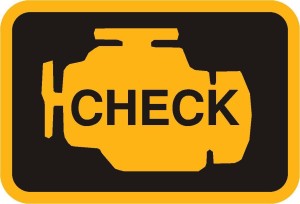If you’ve ever had your check engine light come on, you know how frustrating it is to sit there wondering what’s going on under that hood. Not to mention having to bring it into the shop to get a diagnosis. However, there are some common reasons why your check engine light will come on. Below are some of the most common reasons.
Your oxygen sensor needs to be replaced. The O2 sensor is responsible for monitoring the amount of unburned oxygen coming from the exhaust as well as how much fuel is being burned. A faulty O2 sensor will trigger the check engine light because if left unfixed, it could cause major problems with the catalytic converter.
Your fuel cap is loose. Many people wouldn’t think something as simple as a loose fuel cap would signal your check engine light to come on. But when it is loose, or faulty, fuel vapors can leak out causing an increase in emissions (and a decrease in gas mileage).
The catalytic converter needs replaced. The catalytic converter converts harmful materials such as carbon monoxide into less harmful compounds and reduced exhaust gases. If it is faulty, your gas mileage will decrease and you will have problems accelerating.
Your mass airflow sensor needs replaced. Many times, an improperly installed air filter can cause your mass airflow sensor to fail.
The spark plugs or wires need replaced. Depending on the year of your vehicle, you need to have your spark plugs replaced after so many miles.
If your check engine light is on, bring it to German Performance for a quick diagnostic test.

